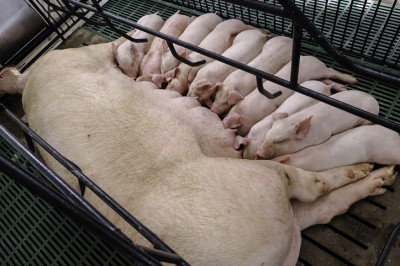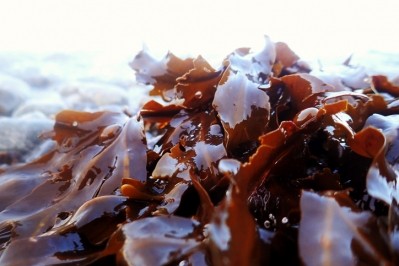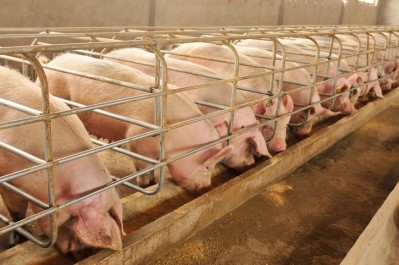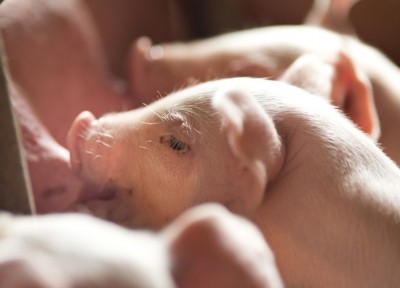Special Edition: Gut Health
Out of the blue: seaweed extracts go commercial as AGP replacer
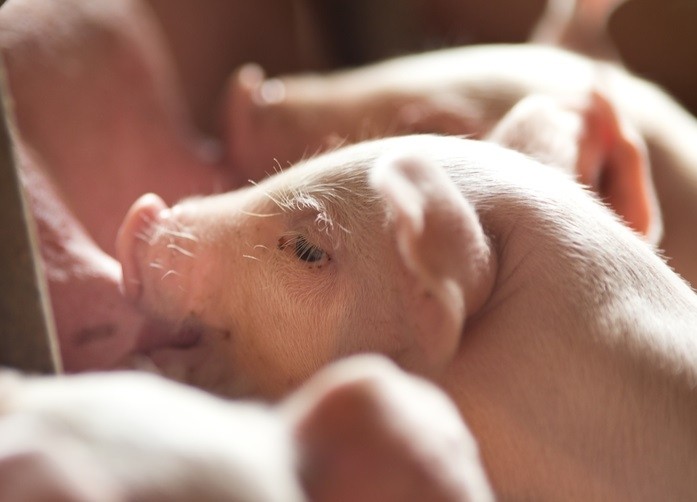
Irish biotech firm, BioAtlantis, is building a new facility in Tralee, County Kerry, which, when it comes on stream, will enable mechanical harvesting of seaweed at source and production of marine-derived polysaccharides fucoidan and laminarin for the feed industry.
While the company’s CEO, John T O’Sullivan, declined to disclose projected volumes, he told FeedNavigator: “Substantial quantities will be produced to cater primarily for the European sow market. This should come on stream within the next six to 12 months.”
Research partners
Since 2005, University College Dublin (UCD) and BioAtlantis have been collaborating on research into the efficacy of the seaweed extracts fucoidan and laminarin as a replacement for in-feed antibiotics.
BioAtlantis has developed the extraction and purification technology to produce the molecules, whilst UCD has used its expertise to measure the effects of laminarin and fucoidan in vivo.
“The focus was on developing products which can effectively replace the need for in-feed antibiotic growth promoters and zinc oxide in pig diets,” explained O’Sullivan.
Professor John O’Doherty, who has led the research into seaweed extracts at UCD, has a personal interest in this area, which stretches right back to his childhood.
“My father used to feed seaweed to cattle and boast about the benefits, athough there was no scientific foundation at the time,” said O’Doherty.
However, early tests in which seaweed extracts were fed to pigs found that the strong antimicrobial effect of the seaweed was being offset by depressed performance due to the presence of phenolics, tannins and alginates.
A process of elimination identified fucoidan and laminarin as the beneficial molecules.
“Our work has shown that fucoidan has a prebiotic effect as well as some antioxidant, antimicrobial, immunomodulatory and antiviral properties, whilst laminarin exhibits antimicrobial properties and a very strong anti-inflammatory effect,” said O’Doherty.
Supporting evidence
Over 40 published studies in the last 13 years have cemented and developed these initial findings.
The latest is a review authored by Professor O’Doherty, which discusses how feeding marine bioactives in both the maternal and the piglet diet can alleviate the negative effects associated with weaning.
This review concluded that: “Recent research has proven that the inclusion of the marine derived bioactives laminarin, fucoidan and chitosan could affect the pig’s intestinal health and growth performance in the post-weaning phase. These supplements could therefore be suitable substitutes for in-feed antibiotics and will have a positive effect on the intestinal physiology, morphology, microbiology and immune response of the post-weaned piglet, leading to an improved growth performance.”
While the primary focus of UCD’s research has been the prevention of diarrhoea in young weaned pigs, is has also provided evidence to support a strategy of maternal diet supplementation with seaweed extracts.
Maternal nutrition
For example, O’Doherty cited several studies in which supplementing pregnant sow diets with seaweed extracts containing laminarin and fucoidan was found to improve resistance to E.coli and Salmonella infections in piglets.
He explained that these findings indicate that ingredients used in the maternal diet can have a substantial influence on growth and gastrointestinal health of the offspring in postnatal life.
“Feeding seaweed extracts to sows can result in a 10% improvement in growth throughout the life of a pig,” he said.
These academic findings have been translated by BioAtlantis into three distinct seaweed extract supplements that will launch next year: LactoShield for the gestating and lactating sow market, NeoShield for the weaned pig market and Sensory Plus for the finisher pig market.
With these products poised for launch and the benefits of fucoidan and laminarin well documented, O’Doherty told FeedNavigator that UCD was investigating other molecules with potential antimicrobial activity.
“We are looking at chitosan - a polysaccharide from lobsters and crustaceans, as well as extracting beta glucans from mushrooms. We have very good in vitro models we can use to identify ‘hits’ before moving them into ex vivo models,” he said.
Source: Animal Production Science (in press)
Title: Novel marine polysaccharides and maternal nutrition to stimulate gut health and performance in post weaned pigs.
Authors: JV O’Doherty, MA Bouwhuis and T Sweeney
